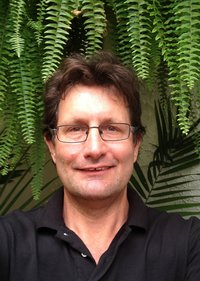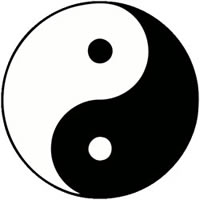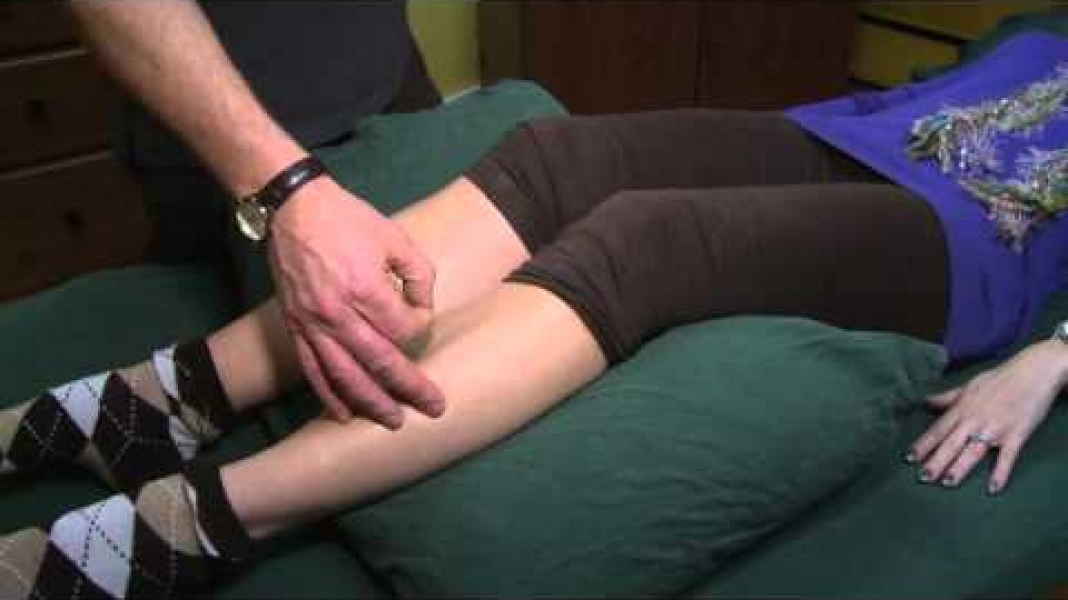
by Gord Grant, PhD, RAc
The words we use to describe our healthcare systems, for good or bad, reveal our biases. First of all, our current use of “healthcare” to name our mainstream medical system has a primary focus on managing and preventing diseases. So “healthcare” is clearly a euphemism, a term we reasonably use instead of “disease care” — understandably, we want to be positive and promote the target idea of a life without disease or markers that predict a pathology!
Medical doctors and the immense system of support staff and technology development do the heroic work of saving lives and dealing with urgent and life threatening conditions that we simply couldn’t have achieved only a few generations back. The average general practitioner simply does not have the time or resources (or training) to work with people in promoting and optimizing health beyond the idea of disease.

They may offer some lifestyle recommendations in passing, and even this is usually based on disease research. Regardless, the more personalized problem of optimizing each patient’s health is not their main work within the short appointment – nor should it be! To restate it clearly: these are highly skilled and well trained practitioners who rule out the possibility of current or imminent disease or disease markers, and investigate further or refer to a specialist if they see any red flags that indicate a problem. This consumes most of their precious and limited moments in a consultation/examination. More or less I think most doctors are achieving what they are trained to do within their resources, time, and pay-for-service business model of the Canadian medical system. This is not to say we don’t need a more integrated approach to health supported by the public system; but I would argue it is not doctors who should be doing this job.
In contrast, “alternative” healthcare describes other healthcare options like acupuncture, massage, naturopathic medicine, rolfing, or chiropractic, for example. These options are not usually medically funded or sanctioned by the mainstream public system, but are usually supported by private healthcare insurance plans or some private healthcare systems. So here is the problem with the word “alternative” — it implies a separate procedure or ideology competing for or doing the same job of treating and managing diseases as our current medical healthcare system does. Indeed, the evidence for these “alternative” healthcare practices, show that they usually work to activate or promote normal healing responses, working toward optimizing health and healing. Rather than alternatives to the medical system, they should be considered as preventative and complementary to the disease management care of the medical system. Oddly, most of the research in alternative medicine is done within a disease or medical model framework, which sets the competitive stage accordingly, instead of using a more complex complementary approach to seeing these modalities in context to usual medical care.
This “alternative” misconception is perpetuated by both patients and practitioners alike by what I call “the end of the rope” phenomenon. Following many years of being in chronic pain or discomfort, patients of the medical system often say it has been unsuccessful to help them deal with a particular disease or injury. They then come to see an alternative doctor who they normally would have never seen initially, either because it was not regarded as legitimate in the mainstream system, and/or because they had to pay out of their own pocket for these private services.
People who seek true “cures” are often disappointed when they come to an alternative practitioner anyhow; they are still thinking in the old medical model way of disease management and magically eliminating symptoms without examining their own lifestyle and history. This goes further to promote the idea by the medical system that alternative procedures are indeed quackery, especially if they claim to compete with the medical system. If a cure was that simple or possible with these alternatives, then they would be “mainstream” as verified by both science and public experience already.
When success or improvement does occur with an alternate therapy in a way that did not previously with medical intervention, the judgment shifts. Now it is the medical system that is illegitimate, even though with great cost it exhausted all medical possibilities focusing on pain or symptom relief. Now when a significant and sudden improvement does happen here in the “alternative world”, I believe it often may be because the client’s body was very close to change — also importantly, he or she was finally able and willing to make other necessary lifestyle changes that were critical for healthy change. If placebo was mainly at work, the placebo would have worked already within the medical treatment! Now though, a client meets the alternative doctor who takes the extra time to approach the problem differently, more holistically and specifically, from a detective’s approach to support the client’s responsibilities. The power of healthcare has now shifted from doctor to client. That’s why our clinic is called, “The Acupuncture Turning Point”, in which we intend to meet you where your health condition or injuries have come to be a turning point in your life.
I am clear about working with the best predictors of success in health: when one is ready to acknowledge or assess what is truly and often uniquely important, and collaborate on how to make changes that support a healthier life, mind, and body. Compared to a medical doctor, many “alternative” practitioners like myself and those in my team are uniquely situated to take the extra time to support people in determining what make things better or worse in their unique circumstances, in a very simple way. We acknowledge the heroic medical model of treating people based on scientific research and statistical probabilities, but instead, we work in safely facilitating a multidimensional approach to achieve systematic incremental improvements in health (not direct mitigation). We slow things down to implement restorative treatments and support awareness and positive lifestyle change. This takes time, since it addresses the unique (non-statistical) nature of someone’s problem — and solutions! Ironically, I more often than not also urge clients cynical of the medical system to realize the need to go back for more medical investigation — things may have changed and they need to become more informed and integrate both medical and health supporting practices within their lifestyle changes — this is called “holistic” in my sense of the word. So here is an another word distortion — “holistic” has come to be synonymous with “alternative” or “natural” or other terms that unfortunately deny the critical and necessary involvement of medical science and personal responsibility. I see a future where holistic becomes to be known as a “whole” system of knowing healthcare, acknowledging the complementary roles of both systems and a person’s self-knowledge.
I administer acupuncture within a framework of promoting musculoskeletal function, and whole body and mind wellness. This usually means time to emphasize and support a client’s commitment to engage in healthful activity, diet, and attitudes. In some American private healthcare systems, they are reducing medical costs and improving health by directing money away from medical interventions and offering health coaching services by non-medical people who build a relationship with a client to support the day to day reality of health choices. (listen here to the excellent CBC documentary about health coaches; Dr. Zubin Damania, CEO and Founder of Las Vegas-based Turntable Health). However, this shift requires a billing system where doctors are salaried and not based on pay-for-service. Discussions about this possibility are happening now regarding our own public system too, as the medical system and government is facing the unsustainable escalation of medical costs and technology, amid an aging population.
So when the medical system doesn’t bring on a cure, or has caused new problems when it may not have fully dealt with old ones, I don’t believe this means it has failed in the narrow sense. I would say that it means that we need to re-frame the responsibility of both health care and disease care from a broader perspective. We patients and practitioners in both the medical and “complementary” systems (notice how I didn’t use the word alternative now!) need to carefully reflect upon the reality of what practitioners are doing and what we can or should expect from them and ourselves. We need a more complex, coordinated and integrated approach that goes beyond alternatives and competing interests.
Holistic does not mean alternative. We would all benefit from a whole system approach that fosters health itself at all stages of our lives, even when we have a disease or injury that requires heroic medical measures. It starts with each of us.




